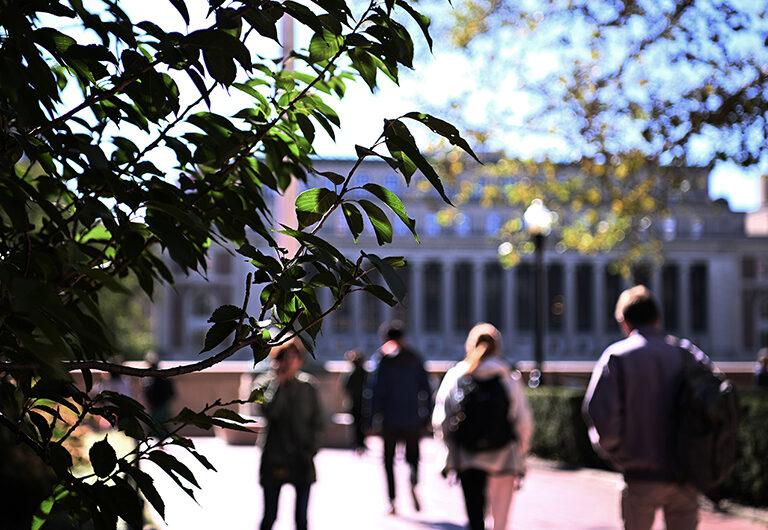The Task Force on Antisemitism at Columbia University has issued its first set of recommendations, “Report #1: Columbia University’s Rules on Demonstrations.”
The report emphasizes three goals of the University’s rules on demonstrations: first, safeguarding the rights of all Columbia students, faculty, and staff to protest; second, ensuring that protests do not interfere with the rights of other Columbia affiliates to speak, teach, research, and learn; and, third, combating discrimination and harassment.
To implement these foundational principles, the task force supports a “speaker’s corner” approach that permits protests in designated areas, but not in academic buildings. Since this is the approach of the new Interim University Policy for Safe Demonstrations announced last month, the task force strongly endorses it.
The task force also highlights the need for more effective enforcement, recommending nonconfrontational ways to stop unauthorized protests as they occur, a simpler process for filing complaints, more flexible deadlines for adjudicating them, more effective use of informal processes, and aggregate reporting on the results. The task force also recommends various ways to combat discrimination while also protecting free speech and academic freedom.
“I welcome the initial report of the Task Force on Antisemitism and am grateful to the co-chairs and task force members from Columbia, Barnard College, and Teachers College for their hard and thoughtful work,” said University President Minouche Shafik. “As the task force makes clear, it is essential to ensure that debates and disagreements across Columbia are rooted in academic rigor and civil discourse, and that Jewish students, faculty, and staff, and all members of our community, feel safe, supported, and included. The task force’s important work will continue across a number of fronts as the University works to address this ancient, but sadly persistent, form of hate.”
“These recommendations were devised to preserve the right to protest, to protect the rights to speak, teach, research, and learn, and to combat discrimination and harassment, including antisemitic harassment,” said Task Force on Antisemitism Co-Chairs Ester Fuchs, Nicholas Lemann, and David M. Schizer. “Although our report focuses on antisemitism, we hope our recommendations will also bolster efforts to combat Islamophobia, anti-Arab racism, and other forms of bigotry. We condemn all these toxic forms of hate, and we look forward to working with colleagues and to partnering on initiatives to counter them across the University.”
The formation of the Task Force on Antisemitism was announced in late 2023 to address the harmful impact of rising antisemitism on Jewish members of the Columbia community and to ensure that an ethic of protection, respect, and belonging extends to everyone at the University. Its work has been done in consultation with senior administrators, faculty members of the University Senate, University Life, the Kraft Center, and members of task forces at other universities, as well as deans, faculty members, alumni, staff, and students from across the University.
Additional areas of focus for the group include an assessment of the discrimination and bias experienced by many Jewish members of the Columbia community, along with proposed remedies; and recommendations to enhance Columbia’s academic and intellectual life in ways that fully embody the principles of free expression and viewpoint diversity.
The task force plans to issue its additional reports over the coming year.
Source link

